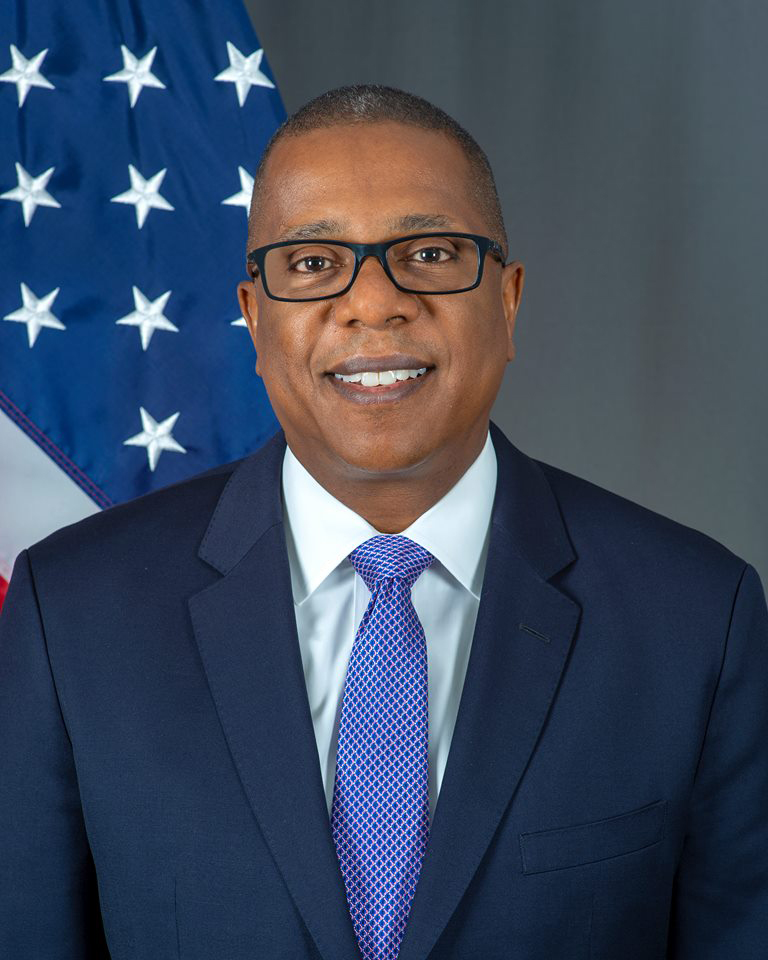By Brian A. Nichols, U.S. Assistant Secretary of State for Western Hemisphere Affairs
Maleka Russell, a Guyanese alumna of the State Department’s Young Leaders of the Americas Initiative, owns an organic farm in Kwakwani that had major flooding in 2021, so Maleka decided to change her business to broiler production. Through the YLAI program, Maleka gained enough confidence to present herself to the President and the First Lady while they were shopping on Main Street during the Christmas holidays. She always remembers the slogan she learned in YLAI, “Don’t wait for change, create it”. The president invited her and her friends to his home to discuss their ideas, and she was subsequently named a director of the agricultural innovation and entrepreneurship program under the Ministry of Agriculture.
Together, we want to create more stories like hers. Too few aspiring change makers and entrepreneurs in the Americas can realize their dreams because inequitable public institutions, corruption, insecurity, poor healthcare, the effects of climate change, and limited access to financing stifle their ideas before they can get off the ground.
President Biden will welcome the leaders of the Western Hemisphere to Los Angeles on June 8-10 for the Ninth Summit of the Americas, with a simple but ambitious goal: help the entire hemisphere – including the United States – realize its potential as a region where democracy delivers for everyone, and people can realize their aspirations no matter where they live.
Democracy and markets have delivered extraordinary gains for the Americas over the past 40 years, but many people still face challenges and tragedy: the single mother in Guyana working two jobs to feed her children; the Haitian family fleeing lawlessness and poverty; the farmer in Paraguay who lost his crop to drought; the parents in Oklahoma who lost their son to illicit fentanyl. We can and must do better for all Americans.
The Summit, while a meeting of governments, centers on the bedrock of all our societies: our people. COVID-19 has claimed more than 2.7 million lives in our hemisphere and inflicted massive economic harm – job losses, declining income, rising poverty. The economic crisis exacerbated the region’s historic inequities, as its ripple effects hit marginalized communities hardest. Job losses have been especially high for women, younger workers, the less educated, and those who work in the informal sector. Russia’s invasion of Ukraine raised the price of essential goods throughout the Americas, from fertilizer to wheat to petroleum. Our shared prosperity depends on the economic recovery and advancement of middle-class growth in the United States and in every country in the region. We remain inextricably linked with the peoples and the economies of the Americas. What happens in the region impacts us here at home.
We have many tasks ahead. Through the Summit, we must commit to a green and equitable economic recovery, resilience in our health systems, and revitalized democracies. The COVID-19 pandemic showed gaps in our public health systems we must work together to overcome. We must bolster transparent and accountable governance, promote and protect human rights, the rule of law, social inclusion, and gender, racial, and ethnic equity. We can generate inclusive prosperity by building a digital economy to bring more people into formal jobs, so we must commit to promoting interoperable, resilient, secure, and reliable telecommunications networks and to facilitating affordable, universal broadband Internet access. Harnessing the hemisphere’s tremendous clean energy potential can serve as a driver for economic development and address the climate crisis, so we must commit to promoting the use of efficient and energy-saving technologies to achieve net zero emissions; cooperating to increase wind, solar, bioenergy, and hydroelectricity; and setting goals to scale-up renewable energy. We must also commit to addressing deforestation, ecosystem conversion, and ocean plastic pollution. Many nations throughout the hemisphere are already experiencing severe impacts from the climate crisis. We must commit to implementing national adaptation plans or strategies, building resilience across sectors, establishing monitoring and evaluation systems, sharing information, and educating the next generation of policymakers.
Progress on all these fronts will restore citizens’ faith that democracy can deliver for the people. We must focus on the basic responsibilities of government: providing security, healthcare, education, infrastructure, and the rule of law. We will do this by investing more in our people through education; building and strengthening more inclusive institutions; protecting and reinforcing the critical role that independent civil society plays; and honoring the inherent human dignity of each individual.
The future of our hemisphere remains bright. The Biden-Harris Administration will seize the opportunities at the Ninth Summit of the Americas to help ensure all Americans share in it.


